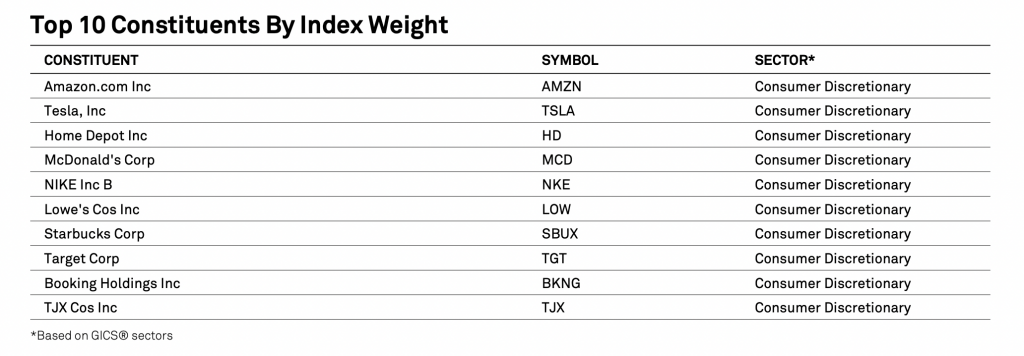The S&P 500’s ESG Index got its annual adjustments last week, with 45 stocks – from Tesla and Disney to Walmart and Etsy – joining the 2-year-old sustainability-centric index, while 21 others, including Facebook, Victoria Secret-owner L Brands and Costco, were dropped from the 315-company list. Described as “a broad-based, market-cap-weighted index that is designed to measure the performance of securities meeting sustainability criteria, while maintaining similar overall industry group weights as the S&P 500,” the ESG 500 weighs companies by “individual environmental, social, and economic & governance dimension scores,” while also taking into account a number of “industry-specific criteria scores that can be used as specific ESG signals.”
According to The Street, Elon Musk-run “Tesla’s addition is probably the easiest to explain,” as the company “was only recently added to the [broader] S&P 500,” making its inclusion on the ESG index the result of “its work with clean energy vehicles and batteries logically follows.” Disney was added to the 2021 index “on the grounds of improved ‘labor practices’ and ‘occupational health & safety’ scores, [and] Walmart was noted for its improvements in ‘human rights.’” As for the entities that were removed, Facebook got the boot in light of “deteriorating environmental reporting and policy influence scores,” with the latter “probably peaking during the election season,” according to the financial news site’s David Dierking. “Costco improved slightly,” he notes, but, nonetheless, “fell behind Walmart and effectively got traded out.”
Still yet, despite otherwise being eligible for inclusion on the list (i.e., meeting the U.S. origin, $11.8 billion or greater market cap, financial viability, and company-type requirements, among others), S&P Global states that L Brands – which is said to be in in talks with potential buyers in furtherance of a $2 billion to $3 billion potential sale following a deal-gone-awry last year – was dropped from the 2021 list “due to [a] relatively poor performance” from an S&P DJI ESG Score perspective compared to its peers. (According to the S&P, the DJI ESG Scores are “environmental, social, and governance scores that robustly measure ESG risk and performance factors for corporations, with a focus on financial materiality.”)
Looking specifically at companies in the “Consumer Discretionary” sector, which make up 12.1 percent of the overall index, (as distinct from the “Consumer Staples” sector, which represents 5.7 percent), Amazon – which has been in the throes of a host of employment-related issues, from allegations of systemic racism to clashes over unionization – currently takes the top spot in terms of index weight. Among the other “Top 10 Constituents” by index weight” Tesla, Home Depot, McDonald’s, Nike, Lowe’s, Starbucks, Target, Booking Holdings (which consists of Booking.com, priceline.com, agoda.com, Kayak, Rentalcars.com, and OpenTable), and TJ Maxx-owner TJX Co.

THE BROAD VIEW: “ESG momentum shows no signs of stopping, with sustainable fund assets nearing USD 2 trillion, following record inflows in Q1,” says S&P Global’s Head of ESG Indices Mona Naqvi. “Pressure on firms to perform in sustainability rankings has never been higher, as Wall Street’s hottest topic gets hotter still.” As for what is driving the push towards ESG investing, which could become a $1 trillion category by 2030, per BlackRock, it is more than merely the rise of a new group of investors (and consumers) that place significant value in sustainability.
The “massive increase” in ESG investing is “not just about values,” BlackRock’s head of iShares Americas, Armando Senra, told CNBC. Instead, it is the “convergence of values with the realization of investment risk and performance” that is prompting more investors to “think about how ESG-related risks may have an impact on their portfolio and incorporate sustainability into their portfolios,” which, in turn, puts pressure on companies to prioritize ESG initiatives.














